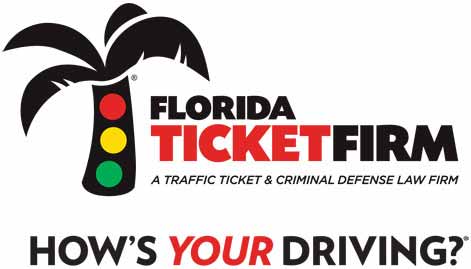Whether we want to admit it or not, everyone speeds. It’s a simple fact of life.
But, there’s a difference between going a few over the limit and barreling down a residential street at 40 miles per hour.
While many people believe that a speeding ticket and speeding citation are identical, this isn’t the truth. In fact, there are key differences that you need to be aware of so that you know the proper course of action to take.
Not sure where to start? Don’t worry, we’ve got you covered.
Let’s take a look at what you need to know.
So, You’ve Been Pulled Over…
It’s never a good feeling to see those flashing red and blue lights in your rearview mirror. It feels even worse when you know you’ve been going over the speed limit.
Unless you’ve never been pulled over for speeding before, you know what’s coming next.
The officer will run your information and issue you a speeding ticket or speeding citation.
First, we’ll go over what happens when you get a speeding ticket.
Speeding Ticket
If you receive a ticket from an officer, you’re going to have to pay a fine for your legal indiscretion. It’s best to pay the fine as soon as possible because there is a deadline that you must keep in mind.
If you don’t pay the ticket before the deadline, you can experience more penalties. These include having your license suspended or even a warrant being issued for your arrest.
The good news, however, is that you do not have to appear in court as a result of your violation.
In the case of speeding, the amount that you’re obligated to pay depends on just how fast you were going. If you were going more than a few over the limit, the fines can get very steep very quickly.
If you’re not a regular offender when it comes to fast driving, chances are that you’ll get a ticket and not a citation. Once again, this is a blessing because you don’t have to appear in court.
However, you’ll have a different experience if an officer issues you a speeding citation.
Speeding Citation
Unfortunately, a getting citation is worse than getting a ticket. If you’re unlucky enough to receive one, you’re going to have to appear in court to defend yourself.
Failing to appear in court (or having an unsuccessful defense against of actions) could result in jail time and hefty fines.
It’s best to sort the issue out in the courtroom as soon as possible since penalties could include having your license suspended. In some cases, you could also experience an unpleasant increase in your insurance premiums.
Fortunately, citations are handed out conservatively. Unless you are going significantly over the speed limit or have multiple past offenses, you’ll likely get away with just a ticket (or even a warning, if you’re lucky)!
How to Deal With a Ticket
If you receive a speeding ticket, you’re going to have a certain amount of time to complete a defensive driving course either in-person or online in addition to paying the designated fine.
If you fail to do so, you’ll get points on your license and your insurance premium will like increase. The number of points you receive is dependent upon how fast over the speed limit you were driving.
Once you pay the fine and complete the course, that’s the end of it. The only thing you need to keep in mind is that the law may not be as lenient next time you get pulled over.
How to Deal With a Citation
The first thing you need to prepare for after receiving a citation is going to court.
If you plan on fighting the citation, you’re going to have to have a solid plan.
While it is the state’s responsibility to prove that you committed the specific infraction, you need to have evidence that your speeding was a result of an external factor outside of your control.
For example, if you may not have been able to see a speed limit sign that denoted a decrease in speed due to bushes or trees concealing it. Or, you may have sped and changed lanes to avoid colliding with a car that pulled out in front of you.
As long as you have proof of an occurrence like this, you stand a fighting chance.
While you can represent yourself in traffic court, it’s always best to go with a traffic lawyer in order to have the best opportunity to avoid consequences.
If you choose to represent yourself, however, don’t be surprised if you do end up with penalties. Citations are more serious than tickets, and judges don’t often take “I’m sorry” as a form of punishment.
What About Insurance?
An increase in insurance can be a nightmare for most drivers, especially if they’re already paying hundreds a month for their policy.
Most insurance companies only look at your driving record over the past few years, so something that happened a decade ago most likely isn’t going to affect your policy today.
But, if you received a citation that was serious enough to go on your criminal record (such as speeding through a school zone or going fast enough to be considered reckless driving), the effects on your insurance can last longer and be more of an issue for you.
Luckily, most states offer drivers the opportunity to expunge these past offenses from their records. If you’re looking at a sharp potential increase in insurance, it would be a good idea to have the offense taken care of.
Getting a Speeding Citation Isn’t Pleasant
But it’s not the end of the world. With the above information, you’ll know exactly how to prepare for a speeding citation if that day comes.
Click here to learn more about important traffic laws in Florida and what you need to know.

